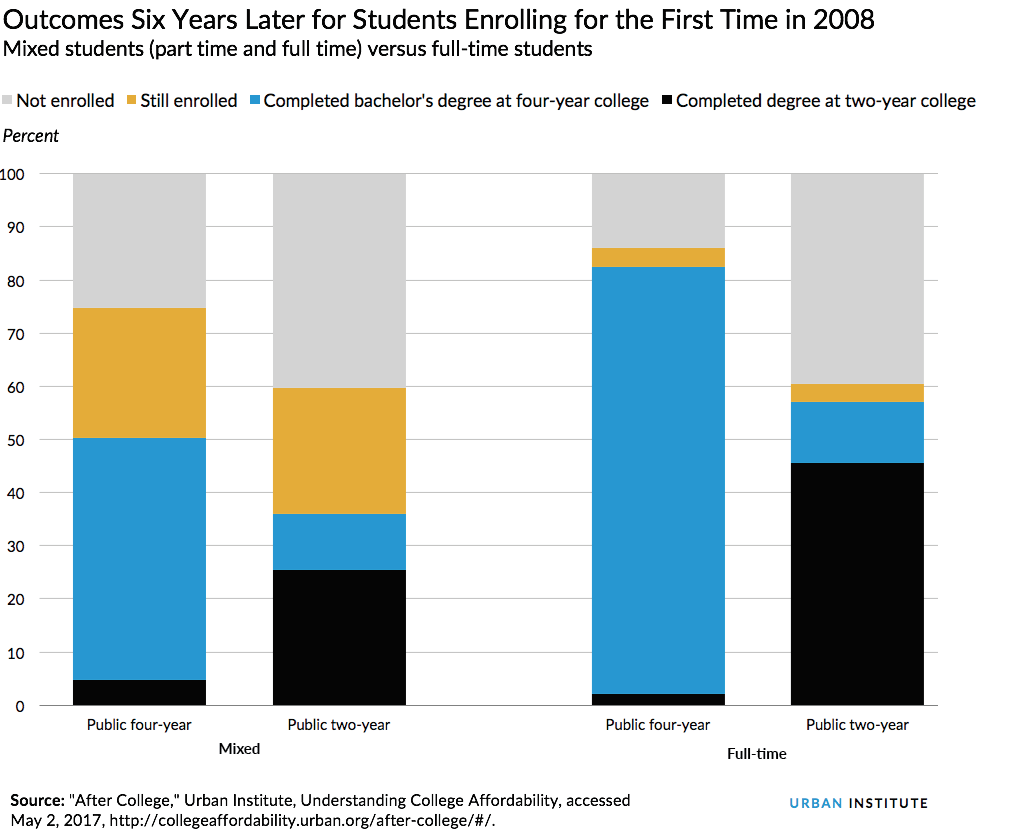
New Mexico’s governor just vetoed all state funding for public colleges and universities, while New York’s legislature claims to be making public college tuition-free for all but the highest earners. These approaches are radically different, but they have one thing in common: both are likely to diminish the quality of higher education available to many students.
Even if New Mexico’s full funding stop is a political stunt, it could have disastrous consequences. New York’s program, which offers tuition-free college to students from families earning up to $125,000 who meet some stringent requirements for enrollment, academic progress, and post-college employment, is also not a serious effort to design constructive public policy.
New York’s “free college” will help a relatively small number of students, most of whom come from families with incomes at or above the median. It does not cover either the 20 percent of the price of enrollment dubbed “fees,” rather than tuition, or living expenses. It allows for a lottery to ration the spaces if there is not enough funding to go around. And it will likely lead to some rude awakenings for students who find they owe the state thousands of dollars because they haven’t met all the conditions for the program.
The problem stems from a fundamental misunderstanding: making college affordable doesn’t mean just lowering the price. It also means ensuring institutions have the resources they need to provide the classes and the academic and social supports students need to succeed in college—to graduate having gained general capacities like creative, analytical, and critical thinking; written and oral communication; and intellectual curiosity, as well as skills that will support specific career directions.
There is strong evidence that institutional resources promote student success more effectively than lower prices do. Institutional resources can translate into more academic support for students, leading to better outcomes and ultimately making college a better value.
A startling number of students who enroll in public college and universities leave without a college credential. Among those who enroll exclusively full time at four-year institutions, about 80 percent earn degrees within six years. But almost half of full-time students at public two-year colleges and those who move between full-time and part-time enrollment at four-year institutions do not earn degrees within six years. Mixed enrollment at public two-year colleges (and part-time enrollment in either sector) is much less likely to lead to completion.

Policies focusing on tuition prices also fail to consider how students cover their living expenses while they are in college. Low-income students often have their tuition and fees covered by federal and state need-based grant aid. They will not receive any extra funding from programs like the one New York just passed that fill in the gaps between tuition and other financial aid. They will continue to struggle with other expenses.
About half of community college students and almost three-quarters of full-time undergraduates at public four-year institutions live either on campus or in off-campus housing not with parents. For those with very limited financial resources, these expenses—not tuition charges—cause the greatest financial strain.

If policymakers were serious about improving educational opportunities at public colleges and universities in their states, they would ensure that institutions are adequately funded and the state provides enough need-based grant aid to make it possible for low- and moderate-income students to graduate from college without excessive debt. Promising to eliminate tuition is not a magic formula for dedicating more money to higher education. In fact, it could lead to even more financial strain on college campuses.
State policymakers should stop playing political games and find a way to provide the funding both students and institutions need to make completion of high-quality college degrees possible for more students.
Tune in and subscribe today.
The Urban Institute podcast, Evidence in Action, inspires changemakers to lead with evidence and act with equity. Cohosted by Urban President Sarah Rosen Wartell and Executive Vice President Kimberlyn Leary, every episode features in-depth discussions with experts and leaders on topics ranging from how to advance equity, to designing innovative solutions that achieve community impact, to what it means to practice evidence-based leadership.